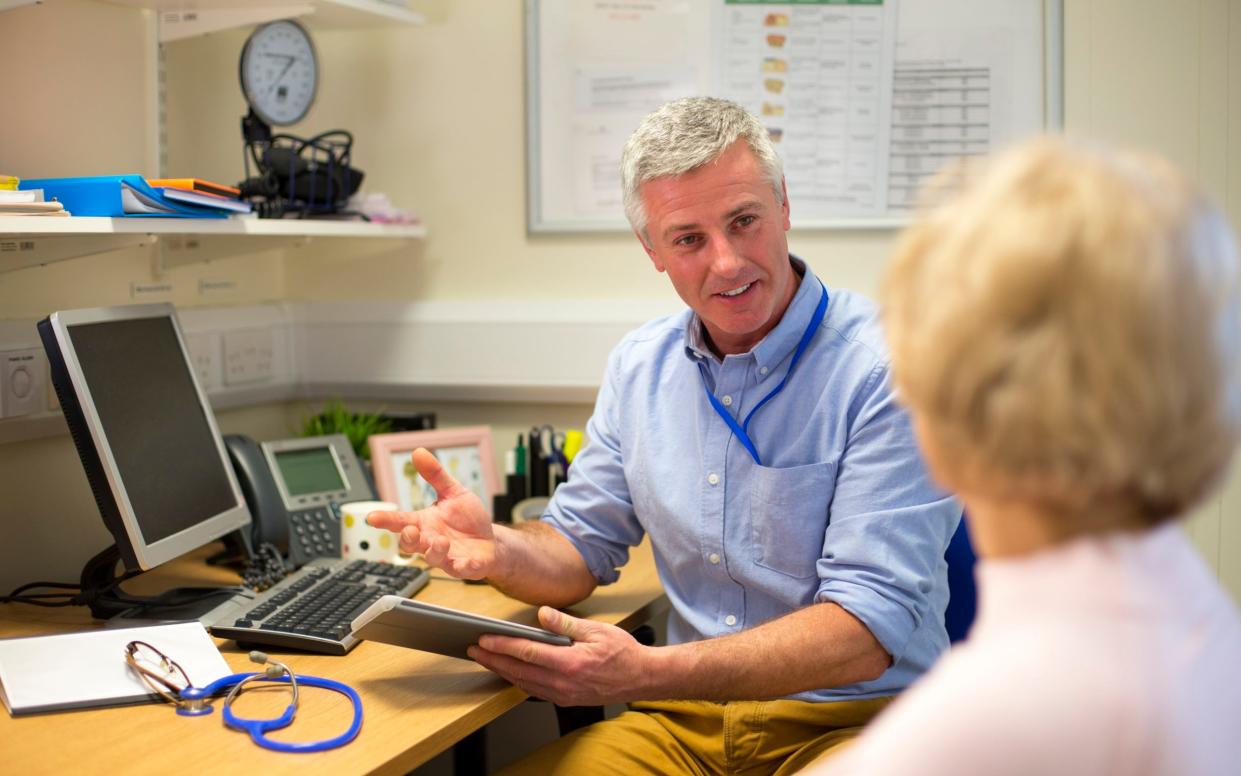Watchdog calls for family doctors after eight GPs miss patient’s fatal cancer

Patients must be seen by the same family doctor to ensure their safety, the health and safety watchdog has said.
An investigation into the death of a 67-year-old man who saw eight different GPs has warned that the lack of access to the same doctor risks harming patients.
Ensuring doctors provide continuity of care should be incorporated into the GP contract to “improve patient safety”, the Health Services Safety Investigations Body (HSSIB) said.
A study by King’s College London and Queen Mary University of London published last year found just 52 per cent of patients had a traditional family doctor they saw regularly, while a YouGov survey commissioned by Rebuild General Practice found three quarters of patients found it beneficial to consistently visit the same doctor.
Wes Streeting, the shadow health secretary, has said he will give GPs financial incentives to let patients see the same doctor under a Labour government.
The 67-year-old, known only as Brian, had been diagnosed with breast cancer in 2008 but recovered, only for it to return and spread to his spine, leading to his death. Breast cancer is rare in men but does occur in less than 1 per cent of cases, affecting around 370 men a year.
Brian first reached out to his GP in April 2018 due to “back pain” but did not receive a diagnosis of cancer until August 2020 when scans at an emergency department revealed a tumour, which had spread to his back and was suppressing his spinal cord.
By this point, he could only be provided with end-of-life care.
During the two years, Brian had appointments with at least eight different GPs, including two out-of-hours and six at his practice, a nurse, two physiotherapists – doctors had considered his pain to be musculoskeletal – and attended emergency departments at least twice, where he had on the first occasion been told he would be “fined for wasting time” if he came back.
The investigation, which did not seek to lay blame but use the example to highlight national issues, was told by GPs that they did “not have enough time” to review medical records as part of the 10-minute consultation slot allocated for every patient.
They said they had “the time that it took for the patient to walk to the consultation room having been called in”.
Brian’s family told investigators they “did not feel that doctors took full account of their concerns” and had “raised the concern of ‘returning breast cancer’ during every GP appointment”.
A cancer specialist told the investigation that when breast cancer spreads, “it is known to spread to the spine” and that cancer was more common in patients with a history of the disease.
Patient safety recommendations
The watchdog said “building clinician-patient relationships” and “providing continuity of information” were key to improving patient safety.
It said there was currently no requirement for GPs to ensure surgeries provided continuity of care, which could include ensuring there are detailed patient notes that another doctor has time to assess before seeing the patient.
The HSSIB’s investigation found a series of issues that keep patients from accessing the same family doctor, including GPs’ workload, issues with IT systems and how notes are displayed, and variation in practice across the country.
It made two official recommendations, the first of which, given to the Department for Health, was to “ensure that the GP contract explicitly includes and supports the need for GP practices to deliver continuity of care”.
The second, given to NHS England, was to update how IT systems relay information about returning patients with “unresolving symptoms”.
‘It was incredibly distressing’
Neil Alexander, the senior safety investigator, said: “What struck our team during the investigation was the clear differences in patient experience and GP welfare between those practices that operate a model continuity of care and those that don’t.
“It became clear to us that in order for GP practices to be able to prioritise continuity of care in a consistent way, it must become part of the essential services they need to deliver.
“Brian’s case was a stark example of what can happen when there is a breakdown in that continuity – it was incredibly distressing for him and his family.
“He told our team, ‘when I am gone, no one else should have to go through what I did’.”
An NHS spokesman said “GP teams are carrying out record numbers of appointments for patients, with half a million more each week compared to before the pandemic and teams work hard to ensure patients see the right clinician based on clinical need and preference.
A Department of Health spokesman said: “Continuity of care is important and all patients must be assigned a named GP. Practices must endeavour to comply with all reasonable requests from patients to see a particular GP or other healthcare professional and people have a legal right to choose which practice they register with.”

 Yahoo News
Yahoo News 
